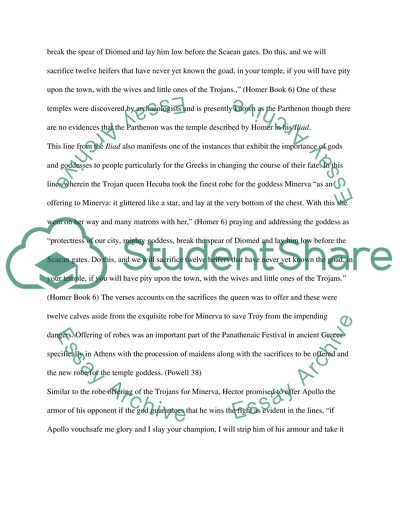Cite this document
(“Homers Depiction of the Significance of Gods to Mans Fate in the Epic Book Report/Review”, n.d.)
Homers Depiction of the Significance of Gods to Mans Fate in the Epic Book Report/Review. Retrieved from https://studentshare.org/literature/1567185-write-an-essay-that-examines-the-roles-that-are-played-by-the-greek-gods-in-the-iliad-be-sure-that-you-also-consider-the-role-played-by-fate
Homers Depiction of the Significance of Gods to Mans Fate in the Epic Book Report/Review. Retrieved from https://studentshare.org/literature/1567185-write-an-essay-that-examines-the-roles-that-are-played-by-the-greek-gods-in-the-iliad-be-sure-that-you-also-consider-the-role-played-by-fate
(Homers Depiction of the Significance of Gods to Mans Fate in the Epic Book Report/Review)
Homers Depiction of the Significance of Gods to Mans Fate in the Epic Book Report/Review. https://studentshare.org/literature/1567185-write-an-essay-that-examines-the-roles-that-are-played-by-the-greek-gods-in-the-iliad-be-sure-that-you-also-consider-the-role-played-by-fate.
Homers Depiction of the Significance of Gods to Mans Fate in the Epic Book Report/Review. https://studentshare.org/literature/1567185-write-an-essay-that-examines-the-roles-that-are-played-by-the-greek-gods-in-the-iliad-be-sure-that-you-also-consider-the-role-played-by-fate.
“Homers Depiction of the Significance of Gods to Mans Fate in the Epic Book Report/Review”, n.d. https://studentshare.org/literature/1567185-write-an-essay-that-examines-the-roles-that-are-played-by-the-greek-gods-in-the-iliad-be-sure-that-you-also-consider-the-role-played-by-fate.


